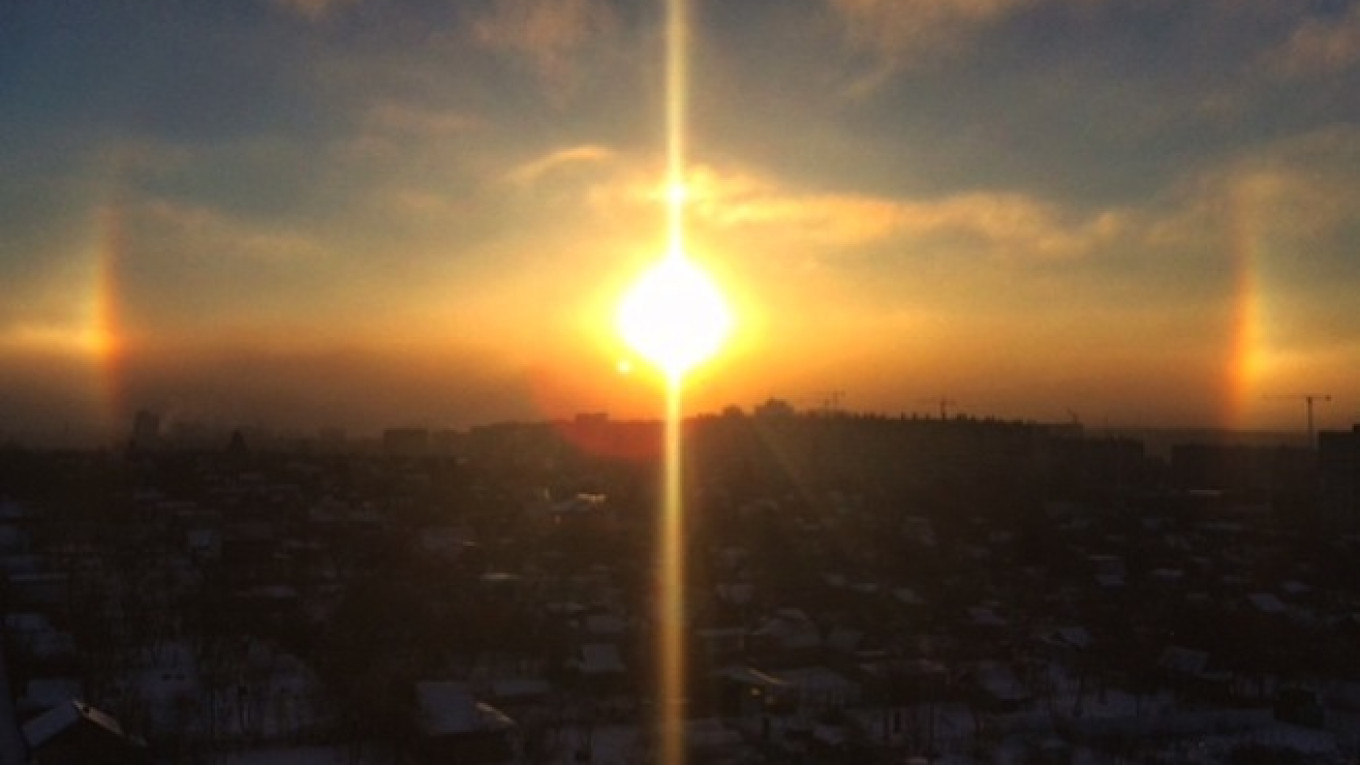Chelyabinsk, a city made famous by a meteorite that exploded there two years ago this month, witnessed a rare phenomenon Tuesday: three suns lit up the morning sky.
The optical illusion, caused by ice crystals refracting light into the winter sky, gave sun-gazers triple vision.
The phenomenon was captured in photos taken by local residents and uploaded to Instagram.
The temperature in the Ural Mountain city was around negative 25 degrees Celsius (-13 F) and the sky was clear, enabling the effect to occur, state news agency TASS reported.
The ice crystals that caused the illusion are too small to be seen by the naked eye, but have strong refractory power in large quantities.
In February 2013 an asteroid entered Earth's atmosphere and exploded over the Chelyabinsk region with an estimated power of 20 to 30 times that of an atomic bomb.
The shock wave reportedly damaged thousands of buildings in the area and injured some 1,500 people, and videos of the incident were shown on news reports all over the world.
A Message from The Moscow Times:
Dear readers,
We are facing unprecedented challenges. Russia's Prosecutor General's Office has designated The Moscow Times as an "undesirable" organization, criminalizing our work and putting our staff at risk of prosecution. This follows our earlier unjust labeling as a "foreign agent."
These actions are direct attempts to silence independent journalism in Russia. The authorities claim our work "discredits the decisions of the Russian leadership." We see things differently: we strive to provide accurate, unbiased reporting on Russia.
We, the journalists of The Moscow Times, refuse to be silenced. But to continue our work, we need your help.
Your support, no matter how small, makes a world of difference. If you can, please support us monthly starting from just $2. It's quick to set up, and every contribution makes a significant impact.
By supporting The Moscow Times, you're defending open, independent journalism in the face of repression. Thank you for standing with us.
Remind me later.


